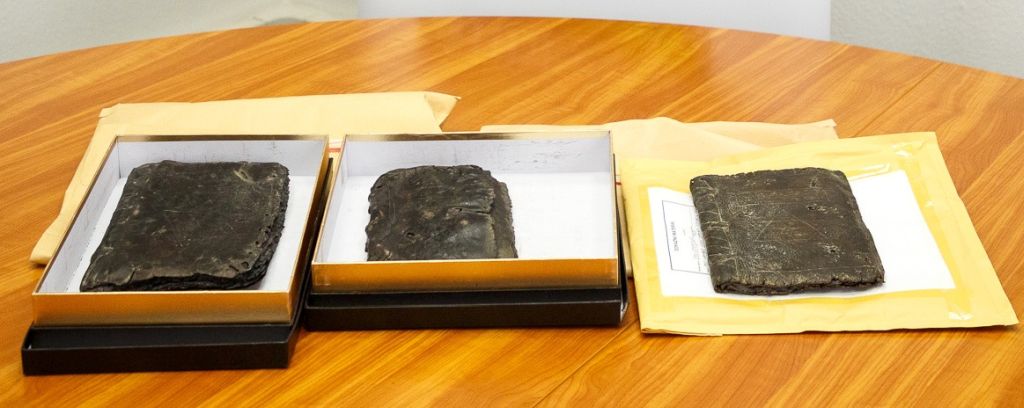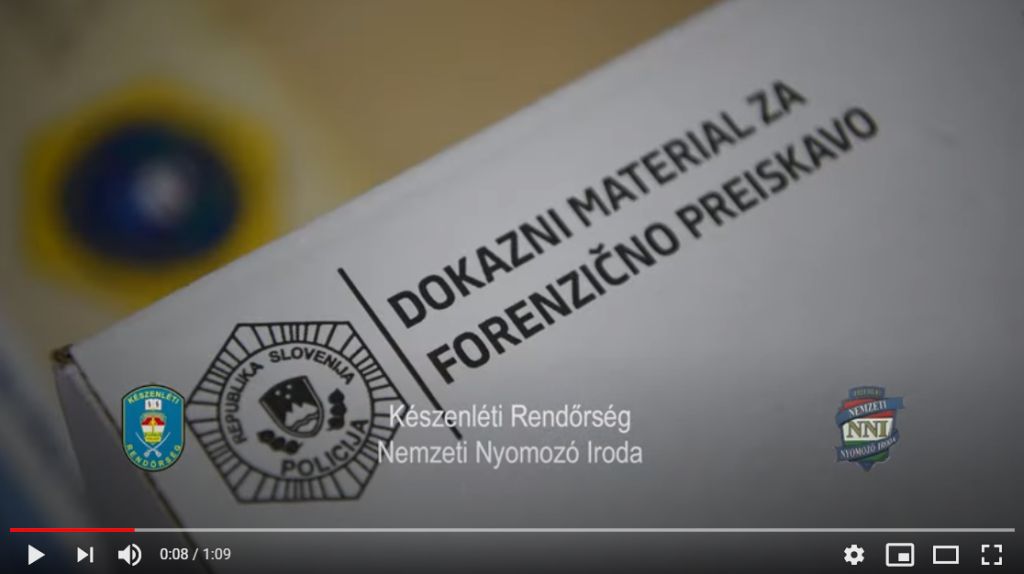They were hoping for a profit of 1 billion HUF from selling ancient religious artefacts
The cooperation between the National Bureau of Investigation and the Slovenian Police prevented the sale of invaluable religious artefacts.

Among the items for sale were three manuscripts made of leather containing religious motives, presumably from the Middle East.
During the summer of 2019, information became available to the Pécs Division of the Transnational Crime Department of the National Bureau of Investigation of Rapid Response and Special Police Services (RRSPS NBI) suggesting that a man and his unknown accomplices, through crime against property, are in possession of religious books presumably hundreds of years old, and they are looking for buyers.
During the investigation, officers uncovered that there are both Hungarian and foreign citizens among the presumed perpetrators. Among the items for sale were three manuscripts made of leather containing religious motives, presumably from the Middle East, from which they were hoping for a profit of 1 billion HUF.
Hopes of a billion
During the final action, which took place last August in Ljubljana, and which included several different units of the Slovenian police, the police officers arrested all suspects and seized the ancient manuscripts, conducted interviews with the suspects and handed over the case to the competent Prosecutor’s Office, which then surrendered the seized items to the competent Hungarian authorities.
The perpetrators organized a meeting with a foreign buyer in Ljubljana in hopes of selling the religious artefacts. The colleagues of the NBI contacted the Slovenian Police, who, based on the European Investigation Order, obtained the order for conduction of undercover investigative measures. With the covert forms of work, five suspects were identified, who arranged a meeting in Ljubljana, where the books (ancient manuscripts) would be examined by experts and agreements on the sale would be made.

Video, published by the Hungarian authorities
Pages more than a thousand year old
Slovenian Investigators interrogated 2 Hungarian, 2 Slovenian and 1 Croatian citizen under reasonable suspicion of the committal of receiving stolen goods. Simultaneously with these measures, the investigators of RRSPS NBI conducted a search on the property of the Hungarian citizens captured in Slovenia, and interrogated one further Hungarian citizen as a suspect in the case. Representatives of the Slovenian Prosecutor’s Office handed over the seized assets to the Hungarian authorities on 10 September 2020.
The expert examination of the seized items lasted since the arrest of the suspects until now. Namely, the competent Hungarian authorities ordered that the religious books must be examined by a court-appointed expert. Based on preliminary examination by experts it can be stated that the seized items are forged documents that may give the appearance of original religious documents. However, despite the fact that in their current state they were presumably compiled retroactively with the intention of misleading potential buyers, they were made by using partially genuine material, possibly by using pages from genuine books. The investigation showed that certain pages surely originated from the 7th century, while other parts originated from the 12th-16th century.

The investigation showed that certain pages surely originated from the 7th century.
The genuine parts of the books, in accordance with Hungarian legislation as well as international conventions, qualify as protected cultural goods, and are unique according to the opinion of the forensic expert, their material value is significant, and as regards cultural heritage, they are invaluable.
The investigation and further expert examinations to establish the origins of the artefacts are currently underway.





